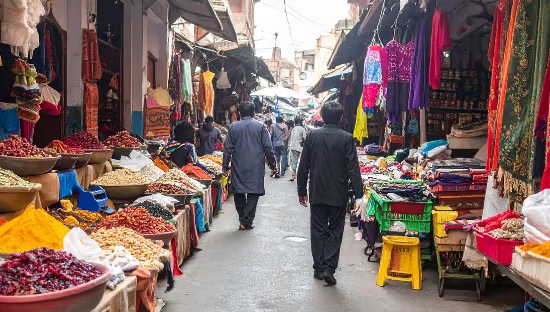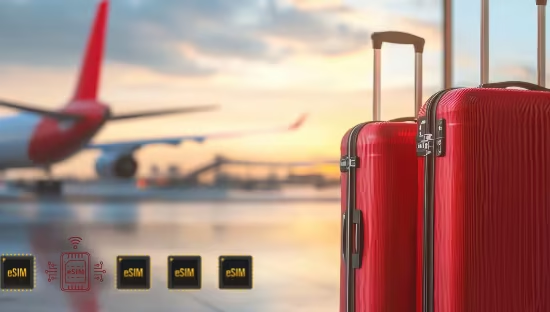
New Amadeus Report Reveals 2025 Boom in AI and Tech for Stress-Free Journeys
Travel isn’t just about boarding a plane or checking into a hotel anymore — it’s about removing friction at every step. A new global study from Amadeus, Connected Journeys: How Technology Will Transform Travel in the Next Decade, shows just how deeply travelers are embracing technology, and especially artificial intelligence, to make trips smoother and more personalized.
The research gathered insights from 9,500 travelers across China, France, India, Singapore, Spain, the UK, and the US. The message is clear: tech isn’t a nice-to-have, it’s quickly becoming a must-have.
Generative AI Becomes a Travel Companion
Usage of generative AI in travel planning is up 64% in the past year, according to the study. Why? Time savings, personalized recommendations, and the thrill of discovering new destinations are leading drivers. In fact, 42% of respondents say AI helps them save time, while 37% value hyper-personalized advice that feels tailored to them.
And the trend goes beyond curiosity: nearly two-thirds of travelers say they would be willing to pay for an AI travel assistant, with some even committing up to 5% of their trip budget for services that promise in-trip guidance and problem-solving.
But the excitement comes with a dose of reality. Around a quarter of travelers report that AI still struggles with outdated information or fails to fully understand their preferences — showing that while the technology is evolving quickly, trust isn’t yet absolute.
Anxiety in the Air
Interestingly, Amadeus found that 90% of air travelers experience some level of anxiety, whether it’s during packing, the airport journey, security checks, or even the flight itself. That number feels staggering, but it tracks with broader studies from IATA and Skyscanner that highlight stress as one of the major disruptors in modern travel.
Technology is increasingly viewed as the antidote. Travelers welcome innovations like remote baggage check-in (66%) and biometric boarding gates (69%), both seen as ways to reduce pre-trip stress and long lines at airports. Apps with real-time updates, digital wallets for secure document storage, and smart baggage trackers are also among the tech tools people say genuinely improve their journeys.
Hospitality’s Next Frontier: Anticipation
Amadeus executives are framing this shift as more than just a trend — they call it a call to action. In hospitality, travelers aren’t asking for personalization anymore; they’re expecting it. As Francisco Pérez-Lozao Rüter, President of Hospitality at Amadeus, put it: “Hyper personalization and real-time accuracy are no longer optional, they are expected.”
That aligns with broader market trends: Marriott and Hilton have both been investing heavily in AI-driven guest experience platforms, while Accor has doubled down on biometrics and app integration for seamless check-ins. The hospitality sector is moving from reactive service to anticipatory service — knowing what guests want before they ask.
“The rapid rise in Generative AI usage shows that travelers are eager for smarter, more personalized experiences. But the data also reveals a clear message: expectations are high, and the industry must work together to meet them. At Amadeus, we see a big opportunity to collaborate across the travel ecosystem to ensure AI delivers real value – reducing friction, enhancing confidence and making every journey more intuitive and enjoyable.”
commented Decius Valmorbida, President of Travel, Amadeus.
Where Travel Tech Is Heading
The rise of AI in travel isn’t happening in isolation. Competitors like Booking.com, Expedia, and Trip.com are also racing to integrate AI into their platforms, not just for search and booking, but for trip management. Booking.com’s AI Trip Planner, launched in 2023, is already seeing traction in North America, while Expedia’s OpenAI-powered tools are targeting highly personalized itineraries.
Compared to these players, Amadeus is positioning itself less as a consumer-facing app and more as a B2B backbone of the travel ecosystem — powering airlines, hotels, and agencies with AI-driven infrastructure. This behind-the-scenes influence makes its findings especially relevant: if Amadeus is signaling AI demand, it means airlines, OTAs, and hotels will feel pressure to adapt quickly.
The Bigger Picture
What stands out from the Amadeus study is that travelers aren’t just experimenting with AI — they’re increasingly willing to pay for it, but only if it solves real problems. The gap between expectations and reality is where the industry’s biggest challenge lies.
At the same time, anxiety remains a defining theme of the modern journey. Travelers may be chasing quality time, food experiences, and lasting memories, but they also want smoother, stress-free trips. AI, biometrics, and automation are being positioned as the bridge to get there.
Conclusion
Amadeus’ findings echo a growing truth across the industry: AI isn’t just a buzzword anymore; it’s becoming the infrastructure of travel. The challenge is execution. Booking.com and Expedia are sprinting ahead with consumer-facing AI tools, while Amadeus builds the rails underneath. Whoever solves the balance between personalization, trust, and reliability will shape the traveler experience in the next decade. For now, the pressure is on — and as McKinsey’s latest travel report notes, those who lag in adopting AI risk losing relevance faster than at any other time in recent history.









